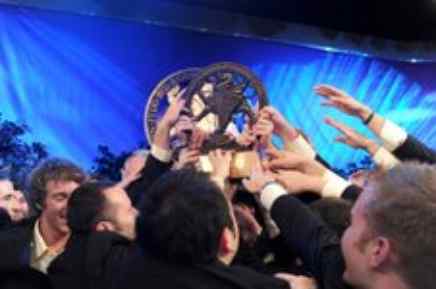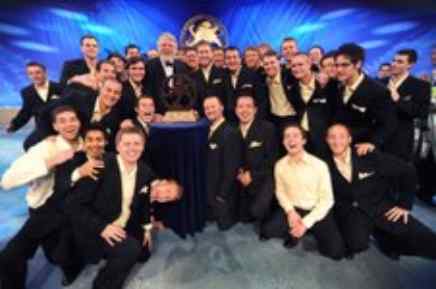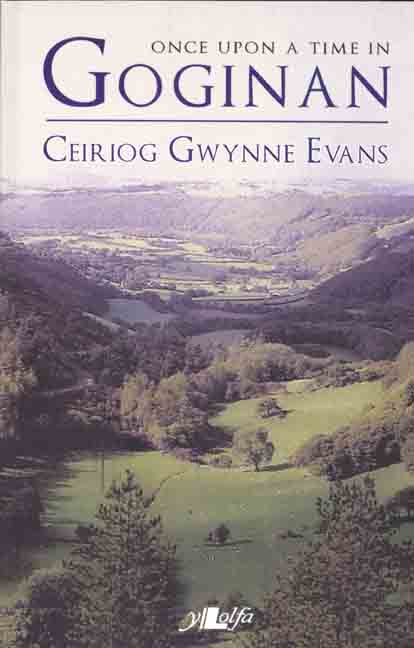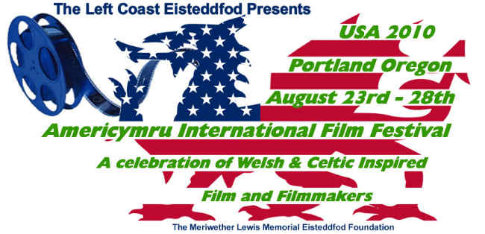Blogs
Choir of the World The Pavarotti Trophy
Simply the most prestigious choir competition in the world.....last night the winning choirs from the five major choral competitions of the Llangollen International Musical Eisteddfod sang in the Grand Final with The Westminster Chorus , California, USA being crowned winners and the Choir of the World. The Barbershop Choir were awarded the famous Pavarotti Trophy, named for the great Italian tenor who competed on the Eisteddfod stage in 1955 when his choir from Modena won the Men's Choir competition. In 2005 Luciano Pavarotti added his name to the Choir of the World competition.
The Westminster Chorus - California - USA- Choir of the world winner - Barbershop Choir Winners
The Westminster Chorus - California - USA- Choir of the world winner - Barbershop Choir Winners
.....help us make it into Google News. Every click counts:)
http://www.prlog.org/10279560-chris-needs-premier-at-left-coast-eisteddfod.html
Once Upon a Time in Goginan is a lively and entertaining account of the village which lies in the hills above Aberystwyth. It includes hilarious and touching anecdotes about the unforgettable local characters, the frequenting of chapels and pubs, the development of the local football league, the effects of the war, and the Boys Own-style adventures which the author experienced during an idyllic childhood in Goginan.
Author Ceiriog Gwynne Evans says: The idea of writing a book of this sort has been gnawing at me for years. Eventually someone told me to get on with it or shut up about it!
He was inspired to write the book when, on a trip back to Goginan from his present home in Trowbridge, he stopped at Nant-yr-Arian and took in the view of the Melindr Valley. As the memories flooded back, I saw in my minds eye a vibrant rural community which lived, laboured and died in this lovely valley. I decided there and then that I would try to perpetuate the memory of these folk by gathering as much information as I could about some of the individuals who contributed to the fabric of society.
One anecdote concerns the local division of the Home Guard. I well remember the first recruitment meeting of these elderly personnel. They were a motley crew; most of them were in working clothes, cloth cap or trilby hat and overalls, carrying an interesting variety of weapons. One or two had double-barrelled shotguns but most were armed with walking sticks, umbrellas or pick axe handles; some of the agricultural fraternity came armed with hoes while the more aggressive types brought pitchforks, some still caked with manure!
The authors family played a central role in many of the villages activities. His relatives included a formidable aunt, Marie, who lived over a hundred years. What was the secret of her longevity? A bottle of whisky a week and one Guinness a day.
The author hopes that his book will encourage people from other rural communities to stir up reminiscences of their own localities and write them down before they are lost in the mists of time.
Once Upon a Time in Goginan also traces the history of the village since the time of the Celts and the Romans, examining developments in education, farming, religion and mining. The book features historical photographs of Goginan as well as the authors own illustrations.
Ceiriog Gwynne Evans was born in Goginan and educated in local schools and the University of Wales, Aberystwyth. He spent his working life teaching and lecturing in and around the London area. He retired in 1990 and moved with his American wife, Cecele, to Trowbridge in Wiltshire.
The author will be signing copies of Once Upon a Time in Goginan on 18 July between 12 and 3pm at Waterstones, 27 Great Darkgate Street, Aberystwyth.
|
In addition to head lining Saturday nights show at the Left Coast Eisteddfod , Chris Needs will also be introducing the premier US screening of his animated film "The Jenkins's's's's'" on Saturday afternoon during a short presentation on the forthcoming Americymru International Film Festival . "The Jenkins's's's's" won the Best Animation/CGI award at this years Swansea Bay Film Festival . For a short review of the book - "The Jenkins's's's's" see below. BUY TICKETS FOR THE LEFT COAST EISTEDDFOD FRIDAY SATURDAY ----------------------------------------------------------------------------------------------------------------------- The revealing autobiography, Like It Is, published in 2007 by Y Lolfa told of Chriss traumatic childhood, his showbiz and charity career as an accomplished pianist and vocalist, and his life more recently as an all-round celebrity. However, this book is a completely different kettle of fish. In her riotous, humour-filled diaries, Gladys tells of her struggle to keep the familys crazy, mixed-up lives together. Mams task isnt easy though. Her husband Dai is work-shy, son Philllip has a handbag, daughter Shantelll is preggers and dog Christopher or is it Christine? has had puppies. Just as well Elsie next door is accommodating she agreed to an adjoining door so they only pay one TV licence. Follow the family from their humble beginnings in the valley community of Ponty Pantin to the sun-kissed Mumbles Bay and foreign parts (including Western Super Mare). Crammed full of outrageous valleys humour, this is an ideal Christmas treat for all of Chriss fans and anyone else who needs a good laugh. The book is illustrated with eye-catching colour cartoons by Mark Davies. Chris Needs is a much loved radio presenter with a high profile thanks to his popular weeknight music and chat show on BBC Radio Wales. His cult fan club The Garden has over 40,000 members worldwide.
----------------------------------------------------------------------------------------------------------------------- Read more about the Left Coast Eisteddfod HERE . Read our interview with Chris needs HERE .
|







